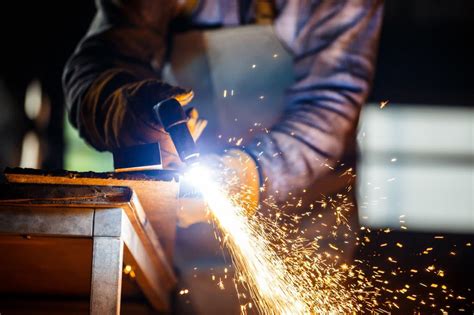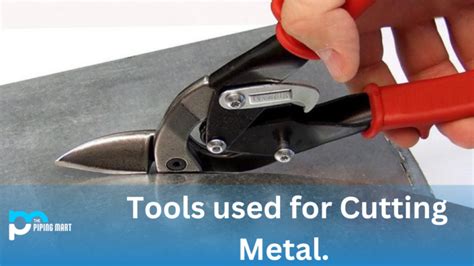cutting metal for fabrication Water jets mix water with abrasive particles to cut metal. This cold-cutting process prevents heat distortion. It cuts thick materials while maintaining material properties. Plasma .
Black Box Distribution was a skateboard distributor owned by professional skateboarder Jamie Thomas. Prior to October 2014, it served seven brands, three of which were owned by Thomas: Fallen Footwear, Mystery Skateboards, and Zero Skateboards. After the company was dissolved, Zero and Fallen moved to Dwindle Distribution. [1]
0 · what is metal cutting
1 · types of metal cuttings
2 · types of metal cutting process
3 · thermal metal cutting process
4 · metal fabrication processes
5 · mechanical cutting process
6 · mechanical cutting of metal
7 · how to fabricate metal
$39.95
what is metal cutting
Choosing a metal fabrication method suited to a given project depends on the designed part’s geometry, the product’s intended purpose, . See moreChoosing a custom metal fabrication shop or custom metal manufacturer that will best fulfill a project’s needs is an important decision that can affect the manufacturing rate, production quality, and cost-effectiveness of a given project. To help in the selection . See moreThis guide provides a basic understanding of metal fabrication, the different methods, and considerations for choosing a fabricator. For more . See moreThe metal fabrication process encompasses manufacturing techniques like bending and cutting, using an array of advanced equipment to produce complex metal shapes, components, and .
Metal cutting is a subtractive metalworking process of dividing a metal workpiece into multiple parts using force or other erosion techniques. The cutting action can be generated with blades or methods like electrical . Water jets mix water with abrasive particles to cut metal. This cold-cutting process prevents heat distortion. It cuts thick materials while maintaining material properties. Plasma .
150cc go kart electric box cover amazon
In this guide, we’ll explore the key sheet metal fabrication techniques, their advantages, and their applications. By the end, you’ll have a solid understanding of the options available to you, empowering you to make . In this article, we will cover 19 different operations you can use to fabricate your metal parts. Let’s dive right in: 1. Rolling Metal. In the fabrication sector, rolling metal is among the most often used techniques. This procedure . Choosing a metal fabrication method suited to a given project depends on the designed part’s geometry, the product’s intended purpose, and the materials used in crafting it. Common metal fabrication processes are as follows: Casting; Cutting; Drawing; Folding; Forging; Extrusion; Machining; Punching; Shearing; Stamping; Welding; CastingThe metal fabrication process encompasses manufacturing techniques like bending and cutting, using an array of advanced equipment to produce complex metal shapes, components, and assemblies.

Metal cutting is a subtractive metalworking process of dividing a metal workpiece into multiple parts using force or other erosion techniques. The cutting action can be generated with blades or methods like electrical discharges and water jets. Water jets mix water with abrasive particles to cut metal. This cold-cutting process prevents heat distortion. It cuts thick materials while maintaining material properties. Plasma Cutting: A Popular Method for Metal Fabrication. Plasma cutting uses ionized gas to slice through conductive metals. The process offers fast cutting speeds for thick .
In this guide, we’ll explore the key sheet metal fabrication techniques, their advantages, and their applications. By the end, you’ll have a solid understanding of the options available to you, empowering you to make informed choices for your organization. In this article, we will cover 19 different operations you can use to fabricate your metal parts. Let’s dive right in: 1. Rolling Metal. In the fabrication sector, rolling metal is among the most often used techniques. This procedure will be .Metal fabrication creates products or structures by cutting, bending, and assembling metal materials. It uses raw materials such as metal sheets, expanded metal, welding wires, and rods to construct various components. In this post, we will break down the five processes that give the manufacturing industry the ability to cut through metals. Chip Forming is a metal cutting process that uses mechanical means like sawing, milling, drilling, and turning. This method was pioneered by Kivima and Franz in the 1950s.
Cutting is the preliminary and pivotal step in any steel fabrication process. It’s about taking the plate raw material and slicing it down to size using specialized equipment for precison manipulation and assembly. Shearing: This method is efficient for making straight-line cuts on sheet metal.
At Cadet Steel, our experts we’ve mastered the art and science of manipulating steel through cutting, bending, shaping, molding and more. To deliver the designs or components that you need for projects big and small, we explore .
Choosing a metal fabrication method suited to a given project depends on the designed part’s geometry, the product’s intended purpose, and the materials used in crafting it. Common metal fabrication processes are as follows: Casting; Cutting; Drawing; Folding; Forging; Extrusion; Machining; Punching; Shearing; Stamping; Welding; CastingThe metal fabrication process encompasses manufacturing techniques like bending and cutting, using an array of advanced equipment to produce complex metal shapes, components, and assemblies. Metal cutting is a subtractive metalworking process of dividing a metal workpiece into multiple parts using force or other erosion techniques. The cutting action can be generated with blades or methods like electrical discharges and water jets.
types of metal cuttings
Water jets mix water with abrasive particles to cut metal. This cold-cutting process prevents heat distortion. It cuts thick materials while maintaining material properties. Plasma Cutting: A Popular Method for Metal Fabrication. Plasma cutting uses ionized gas to slice through conductive metals. The process offers fast cutting speeds for thick . In this guide, we’ll explore the key sheet metal fabrication techniques, their advantages, and their applications. By the end, you’ll have a solid understanding of the options available to you, empowering you to make informed choices for your organization.
In this article, we will cover 19 different operations you can use to fabricate your metal parts. Let’s dive right in: 1. Rolling Metal. In the fabrication sector, rolling metal is among the most often used techniques. This procedure will be .Metal fabrication creates products or structures by cutting, bending, and assembling metal materials. It uses raw materials such as metal sheets, expanded metal, welding wires, and rods to construct various components. In this post, we will break down the five processes that give the manufacturing industry the ability to cut through metals. Chip Forming is a metal cutting process that uses mechanical means like sawing, milling, drilling, and turning. This method was pioneered by Kivima and Franz in the 1950s. Cutting is the preliminary and pivotal step in any steel fabrication process. It’s about taking the plate raw material and slicing it down to size using specialized equipment for precison manipulation and assembly. Shearing: This method is efficient for making straight-line cuts on sheet metal.
types of metal cutting process
thermal metal cutting process

CNC machining, or CNC manufacturing, is a process using computer numerical control (CNC) machines. These machines, such as mills and lathes, are guided by computer instructions that control the precision of the .
cutting metal for fabrication|mechanical cutting process